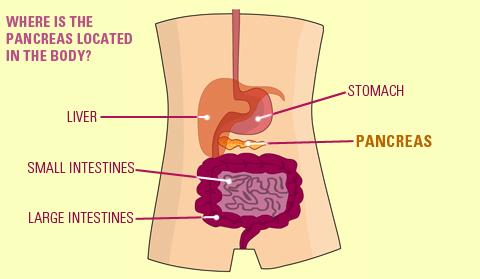What is Diabetes?
There is a hormone (chemical) in your body, whose work is to regulate the amount of sugar (glucose) in your blood. This chemical is called insulin and it is produced by a gland called pancreas. Diabetes is diagnosed if there is not enough insulin in your body, or your body cells do not recognize the insulin at all, such that there is sugar (glucose) build up in your blood.

Every human needs energy to survive. We get energy from the food we eat. Some foods are particularly high in energy. These include starchy foods like rice, carbohydrates, pasta, potatoes and almost all sweet fruits.
Each time we eat these, they digest and convert into glucose. The glucose (sugar) level in our blood therefore rises. Our brain detects it and sends signals to the pancreas to produce a special hormone (say hor-moan) called insulin (say in-soo-lin). Insulin begins to work on the sugar (glucose) in the blood, to prepare it for the body’s cells to use it up as energy.
When a person has diabetes, there is usually very little of the hormone insulin, or none at all. This means that the sugar (glucose) from the energy foods get stuck in the body (blood), because there is no insulin to convert if for use in the cells.
Some people get prediabetes for some time before they are fully diagnosed. This is when they have higher than normal blood glucose, but not high enough to be fully diagnosed as diabetics.
Diabetes come in two main types — Type 1 and Type 2 Diabetes.
Now, we shall see the 2 types of diabetes in detail.
 |














